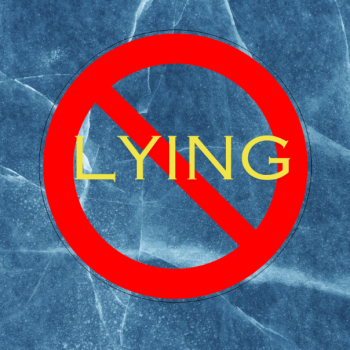
You know how you feel when you are really hungry but too busy to take a break to eat?
Your stomach rumbles and you feel like you cannot concentrate. And the only thing that will remedy this is if you are willing to stop what you are doing and just make time to eat, and preferably something of substance that is nutritious. But, if you just grab a handful of Cheetos, it only staves of the pangs of hunger for a moment. Gulp down water and it will only temporarily quell the grumbling.
I often think that coffee will do the trick for me. Caffeine rushes produce, for me, a false fulfillment of nutrients. Others reach for sodas or other ultra-caffeinated beverages.
The norm for me, unfortunately (and as of lately) is that I am constantly hungry. I am horrible at feeding myself but I make sure everyone eats in the house. I am just always busy and I know I have to learn to sit and rest…and eat! Which also means I have to make sure that what I eat is nutritious as much as it is fulfilling, and not just temporarily.
I’m Just Hangry!
There’s a particular emotion that comes about as a result of being hungry. Many of us know it as the combination of hungry and angry—hangry. I get hangry and it creates conflicts for all of the interactions that I engage in. I can be short-tempered. I can act easily offended. I get really defensive and really emotional when I am hangry. My finger points outward and I walk around ready to deflect and react.
I have a hard time staying focused, so I am easily distracted. And then I try to overcompensate which burns more energy, which makes me even more hungry. I become volatile.
We all know this hunger, don’t we? And during our hunger, we get hangry. It’s not just that our bellies are empty so much as it is that our minds are famished as well. Our spirits are starving. Our identities are going through a fast. We are desperate for a feast of knowledge and understanding.
So, we all seem hangry. I know many don’t want to admit it—hell, I hate to admit it. But the truth is, we have been surviving off a diet of processed simple carbs instead of high fiber, complex carbs.
The result of this dangerous diet is that we are becoming mentally malnourished.
Tastes Change
Your taste buds change every 7 years.
I recall many occasions where this statement was used to convince children to try a new dish. I have to admit, in some instances it worked!
“I know you don’t like asparagus, but you haven’t eaten it in ages, maybe your taste buds changed?”
“You’re right- I do like asparagus!”
Not only do your taste buds change, but your sense of smell changes as we get older.
But so many of us stick to what we know. We prepare the same meals week after week. We frequent the same restaurants and order the same items off the menu. People know what they like and they stick to what they like. After all, who wants to spend money on a meal they may end up not liking?
Bring on the Buffet!
I like to try new things. In actuality, most people will try new dishes if presented with enough choices—especially at a buffet. But isn’t the world our buffet? Don’t we have a spread of delectable choices to savor every day? Why don’t we try the squid instead of going for the same, soggy sweet and sour chicken? What about the oysters instead of the pork stir -fry?
What’s also peculiar about our food choices is that we will argue over why what we favor is better than what others favor. We will condescend others who enjoy dishes that we find detestable. We say things like, “People who like pickled beets just lack taste altogether.” My favorite is something my mother would say to me, “I am just a super-taster. I know good food. You just are not a super-taster like me, you’ll eat anything.”
We literally insult people because of their food choices. So it should come as no surprise that we are willing to do the same when it comes to other areas that require a particular “acquired taste”: art, music, movies, literary works, political ideologies, and religious beliefs.
I’m not eating that!
Have you ever watched a child at the dinner table when you present a new dish? It’s one of the most fascinating experiences for me. I know very well that my child is hungry because I have intentionally reduced her snacking that day to ensure she will eat her dinner.
She will be so hungry but refuse to eat what I prepared because it is new. She is both hungry and now, hangry. She wants to eat, she needs to eat, but the thought of trying something new makes her cry. She protests, insults the consistency of the dish, claims that it’s not what people should eat. That if she eats it, it will make her sick.
As I continue to insist—by using tech-time against her—she decides that it is in her best interest to take a bite. So she does. And her taste buds as well as her grumbling tummy, are greeted with explosions of satisfaction.
It’s Like Green Eggs and Ham
“Say!
I like green eggs and ham!
I do! I like them, Sam-I-am!
And I would eat them in a boat.
And I would eat them with a goat…”
It’s amazing how many times I can read Dr. Seuss’s Green Eggs and Ham to my children and miss the ultimate message. I have been reading that story for almost four decades, yet only recently was I able to fully comprehend the deeper concepts present in such a vivid and imaginative story.
When I am hangry and know I need to eat something, anything, of substance, I often dismiss what is readily available because I think “I don’t want that” or “I don’t like that” or “I am not in the mood for that.” “I do not like green eggs and ham. I do not like them Sam-I-am!”
We do this when we are deciding what to nourish our hearts and minds with as well. We think we know what we want and while we are searching through the cupboards and fridges of reality, we skip over nutritious items because “that’s not what I like”. We also don’t have conniving intermediaries following us around telling us we need to try this or that.
While I may have a temporary power over my daughter when it comes to convincing her to try something new; I don’t have that kind of power when it comes to convincing readers or listeners to try something new. All of us, I would guess, seem to struggle with convincing others that what we like, they might like too.
Is it because we are so used to our diet of cognitive and confirmation bias that the thought of changing our minds feels like a betrayal to our identity? Or is it something more? How long will it take us, and what will it take for us; to go from “I do not like them, Sam-I-am” to “I do! I do like green eggs and ham! I do like them, Sam-I-am”?
Backfire
In a recent interview, I invited a guest on my show to discuss UFOs. With Area 51 trending in our newsfeeds, it seemed like a good topic of discussion to present to listeners. But beyond the conversation of hidden military organizations and JKF conspiracies, my guest focused on the Backfire Effect.
In 2010, Brendan Nyhan and Jason Reifler coined the term “backfire effect” after having conducted a study about political misconceptions. What they found was that “direct factual contradictions can actually strengthen ideologically grounded factual beliefs—an empirical finding with important theoretical implications.”
The premise is this: When your beliefs are challenged with facts—facts that actually prove your current belief is wrong—instead of accepting the new information, we will cling to our original beliefs even more than before. This psychological phenomenon presents itself heavily within political ideological discourse.
The study focused on how others would react when presented with factual information that weapons of mass destruction did not exist in Iraq as the Bush administration had alleged. Liberals were more likely to accept the new information whereas conservatives grasped their original beliefs more tightly than before.
This phenomenon, however, is not meant to castigate conservatives and edify liberals. The same phenomenon has been demonstrated by liberals when presented with new information about Clinton’s involvement with Benghazi, Obama’s involvement with cash payments to Iran, as well as both of their involvement with the Fast and Furious program, as well as Russian interference. Now, I know many will focus on these statements alone, but I urge you to consider reflection over reaction.
Confirmation bias shields us when we actively seek information out, independently, but the backfire effect defends you when the information seeks you out.
Now, there are arguments against the idea that the backfire effect is prevalent. Some works indicate that people are able to overcome the instinct to defend their own positions and are in fact willing to accept that their beliefs are wrong. For now, let’s focus on the possibility that this effect does influence our way of thinking.
The Amygdala and Adrenaline
Evolutionary biology has unveiled that we are wired to protect ourselves and our beliefs. When humankind was developing, a type of confirmation bias ensured our survival. Our amygdala secreted adrenaline when we were faced with a threat. During hunter/gatherer eras, this kept us alive. But why does this same chemical secrete when we are faced with disagreement?
Early civilizations depended on this chemical. If roaring or howling was heard in the near distance, one would know that a threat was lurking and had to be on guard. Adrenaline contributes to increased speed and strength. And if faced with a ravenous, dangerous predator, one would need to escape fast or have the strength to overpower the animal if it approached and attacked.
Adrenaline rushes heighten our senses, too—including our vision and smell. If one always knew that particular plants with these berries with those leaves, with this fragrance, are poisonous, there was nothing that could convince one to eat such berries and take that risk. Doing so could ultimately lead to death.
It was habits that kept us alive. Routines protected us from harm, and sticking to what we knew prolonged life.
Now, however, we are an advanced civilization. We have a buffet of resources available to us. We know that there are some plants that resemble a poisonous plant but are not poisonous.
We know that some snakes resemble deadly ones, there are particular markings that signify the difference. So not all snakes that look like the deadly snake will harm us. The kind of conditioning that kept us alive thousands of years ago is no longer necessary for advanced societies.
In fact, more studies are indicating that habit and routine can actually harm us. There is also evidence that shows how adrenaline can actually block our ability to think critically. In developing civilizations, critical thinking came secondary to carnal, animal instincts. But times have changed.
Here the thing; once something is added to our collection of beliefs, our natural instinct is to protect it. Protecting those beliefs in the past meant protecting us from pain and gave us better chances of experiencing pleasure. The pain/pleasure principle.
While we may have the science and data that informs us how to avoid much physical pain, we know that realistically, we can’t avoid all pain. Especially pain inflicted on the ego. We know there are strategies available to reduce pain and suffering, but we know we cannot ultimately avoid it.
What does all of this have to do with being hangry?
Blowfish is a delicacy that requires expert handling. If not prepared correctly, the result is death. The surge of adrenaline that sets off the alarms to warn us that this risk is too high are acceptable. In this case, there is a potential threat and one could justify not trying blowfish with no arguments from me.
Mashed cauliflower, however, is not deadly (although it is rather bland). So, if we try mashed cauliflower, we are not going to threaten our survival.
As my daughter discovered, if the benefit of eating such a dish means that her tech-time is restored, she will happily eat the bland substitute for mashed potatoes. And her hangry state is transformed.
Perhaps she consoled herself mentally. She worked out the scenario. There is no need for me to worry about this cauliflower. What I am smelling is a new smell, not a dangerous smell. What I am tasting is not poisonous, but just different.
Eventually, she deduces that she is not in danger, and in fact, different can taste wonderful!
Ultimately, she realized that, upon reflection, her reaction was unnecessary.
How do we transform our hangry state?
We are all hungry for truth. But sometimes we are willing to eat things labeled as “truth” and realize only later that we were given a sugary substitute that couldn’t possibly provide the calories we need to thrive, but only to survive. But our taste buds are already accustomed to this sugary substitute. And so far, we have survived off of this substitute.
But, is survival all we are after? Or do we really want to live—thrive? What if reaching for the real truths meant that we would thrive? What is we were willing to consider that the new menu items could expand our experience ten-fold?
Would we rather stick to the substitutes, the simple carbs, the Cheetos, instead of trying the cauliflower and the squid? Do we want to remain hangry or do we want to feast?
Most of us would probably be content with liquid infusions or IV lines of knowledge that someone less could simply administer for us to reduce the amount of decisions we make in a day.
And to be honest with you, when I am really locked into a writing spree, I could certainly use a literal IV drip of coffee and protein! But that wouldn’t be healthy for my body nor would a similar dose of information be beneficial to our minds.
We have the ability to transform the tendency to invoke this backfire effect by learning some basic strategies. My guest, Perry Willis, said we must ask ourselves these questions:
-
Do I need adrenaline in this situation?
-
Do I really need increased speed or strength to evaluate what I’m reading seeing, or hearing?
-
Is it helpful to degrade my thinking by secreting hormones designed to cope with physical danger?
Willis further adds that we need to “self-interrogate”. “Question your reactions. Remind yourself that you’re in no physical danger” just because someone presented you with new information or disagrees with you or challenges you and your beliefs. If we “do this often enough”, then our “amygdala will start to rewire itself.” We can then develop a new “habit of reacting more calmly to new ideas and differences of opinion.” He continues:
The more you practice this, the more it will become second-nature. You will slowly experience fewer adrenaline surges in response to disagreement. Calm, rational thought will become as natural to you as speaking English. You might even find that changing your mind is fun and productive. You’ll then be able to model this new found power to help others achieve the same goal. So carve a new groove. Become less reactive and more reflective.
But Willis offers a cautionary provision:
None of this means you’ll necessarily agree with anything…but intermittent deep-breathing and self-interrogation will help you think…more clearly.
Transforming the way that we think will transform the way we connect.
Is this palatable for you?
For more discussion on this, please click on the link and subscribe to Recorded Conversations. This episode will be available on August 6th, 2019.
For more on Perry Willis, click here.
















